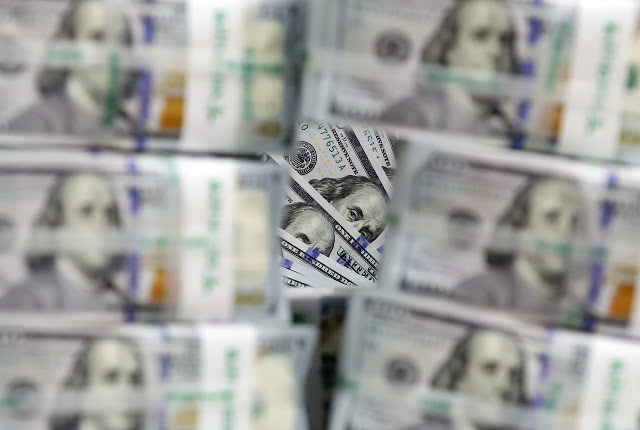 |
(Yonhap) |
The South Korean government’s recent issuance of low-yielding foreign exchange equalization fund bonds indicates the credibility for the fundamentals of Asia’s fourth-largest economy, the country’s top fiscal policymaker said Thursday.
“We have been able to reconfirm the overseas investors’ positive assessment of Korea’s economic fundamentals,” the fiscal chief said via Facebook.
His remark addressed the government’s earlier announcement that it has issued $1.45 billion in foreign exchange stabilization fund bonds at a record-low interest yield level. The amount comprises $625 million and 700 million euros.
The 10-year dollar-dominated bonds carry a yield of 1.198 percent, while the five-year euro-denominated bonds carry a record-low yield of minus 0.059 percent, according to the Ministry of Economy and Finance.
This was the first time that a non-European state sold euro-dominated bonds with a negative yield, which indicates that investors would earn less than the original purchase price upon the bond’s maturity.
It also marked the first time in six years that Korea issued euro-dominated forex stabilization bonds.
The yield for the dollar-dominated bonds was lower than those of previous 10-year dollar dominated bonds which were mostly set in the upper 2 percent range.
A foreign exchange stabilization bond is a type of foreign currency-denominated bond for promoting forex market stability. The issuing rate is used as a benchmark rate when public and private corporations procure funds from abroad.
When the given yield is set at a negative range, the issuer is to receive an interest that is equivalent to the minus yield, in addition to the face amount, and return the face amount only upon maturity.
It was the high demands from overseas investors that led to the record-low yield, Seoul’s government said.
“Even amid the global economic uncertainties due to the continued spread of COVID-19, many overseas investors have showed faith for our economy,” Hong said.
The Korean government had originally planned to issue $500 million and 500 million euros but later expanded the volume as more than $5 billion and 5 billion euros worth of investment orders rushed in, according to the minister.
The investor pool comprised central banks, sovereign wealth funds, as well as an increasing number of European and Middle Eastern investors, he added.
By Bae Hyun-jung (
tellme@heraldcorp.com)








![[Today’s K-pop] Blackpink’s Jennie, Lisa invited to Coachella as solo acts](http://res.heraldm.com/phpwas/restmb_idxmake.php?idx=644&simg=/content/image/2024/11/21/20241121050099_0.jpg)